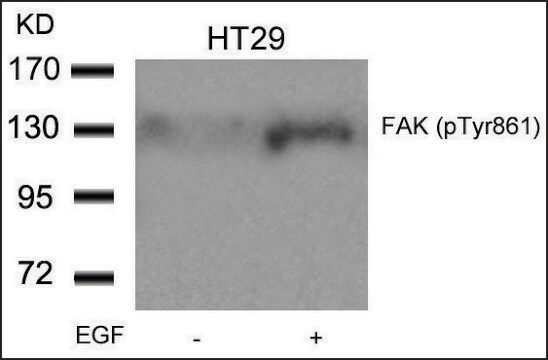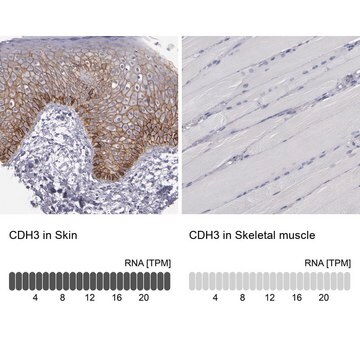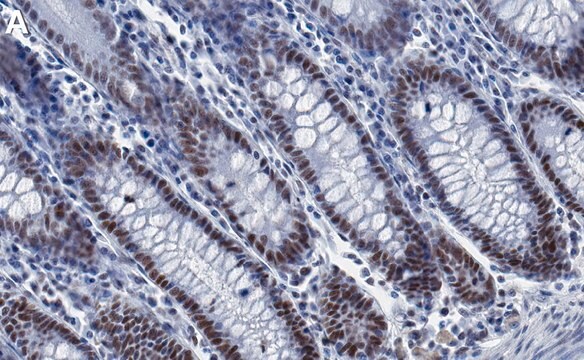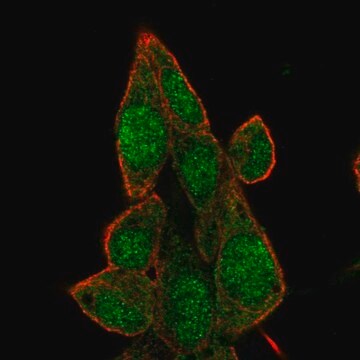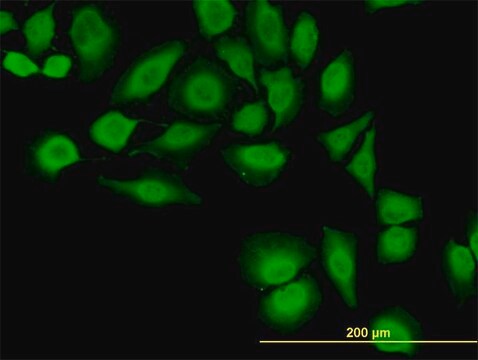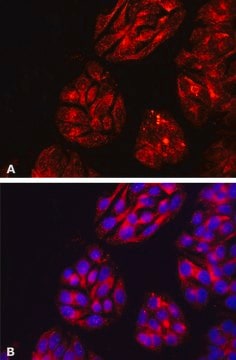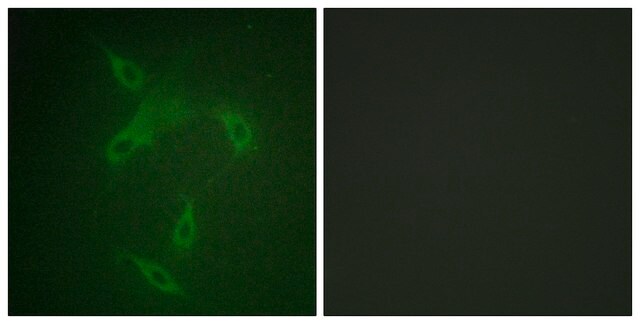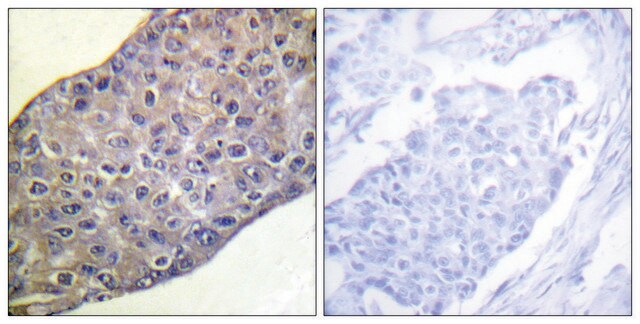SAB4200047
Anti-BRD7 antibody, Rat monoclonal
clone BRM 2D3, purified from hybridoma cell culture
Sinonimo/i:
Anti-BP75, Anti-Bromodomain containing 7, Anti-CELTIX1, Anti-NAG4, Monoclonal Anti-BRD7 antibody produced in rat
About This Item
Prodotti consigliati
Origine biologica
rat
Coniugato
unconjugated
Forma dell’anticorpo
purified from hybridoma cell culture
Tipo di anticorpo
primary antibodies
Clone
BRM 2D3, monoclonal
Forma fisica
buffered aqueous solution
PM
antigen ~80 kDa
Reattività contro le specie
rat, mouse, monkey, human, bovine, canine
Confezionamento
antibody small pack of 25 μL
tecniche
immunocytochemistry: suitable
immunoprecipitation (IP): suitable
western blot: 0.5-1.0 μg/mL using HeLa cells extract
Isotipo
IgG2a
N° accesso UniProt
Condizioni di spedizione
dry ice
Temperatura di conservazione
−20°C
modifica post-traduzionali bersaglio
unmodified
Informazioni sul gene
human ... BRD7(29117)
Categorie correlate
Descrizione generale
Applicazioni
- immunoblotting
- immunoprecipitation
- immunocytochemistry
Azioni biochim/fisiol
Stato fisico
Esclusione di responsabilità
Non trovi il prodotto giusto?
Prova il nostro Motore di ricerca dei prodotti.
Codice della classe di stoccaggio
10 - Combustible liquids
Punto d’infiammabilità (°F)
Not applicable
Punto d’infiammabilità (°C)
Not applicable
Certificati d'analisi (COA)
Cerca il Certificati d'analisi (COA) digitando il numero di lotto/batch corrispondente. I numeri di lotto o di batch sono stampati sull'etichetta dei prodotti dopo la parola ‘Lotto’ o ‘Batch’.
Possiedi già questo prodotto?
I documenti relativi ai prodotti acquistati recentemente sono disponibili nell’Archivio dei documenti.
Il team dei nostri ricercatori vanta grande esperienza in tutte le aree della ricerca quali Life Science, scienza dei materiali, sintesi chimica, cromatografia, discipline analitiche, ecc..
Contatta l'Assistenza Tecnica.